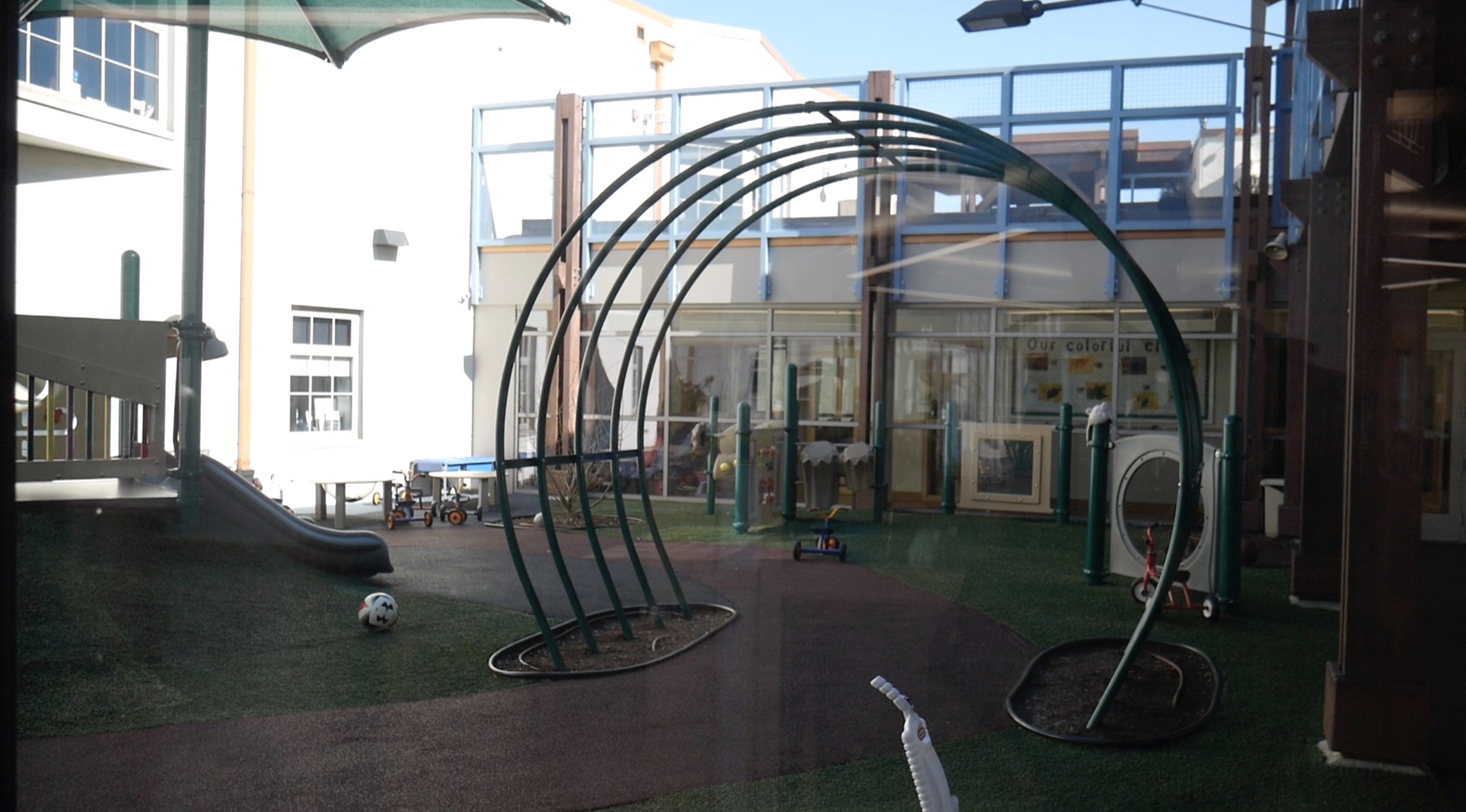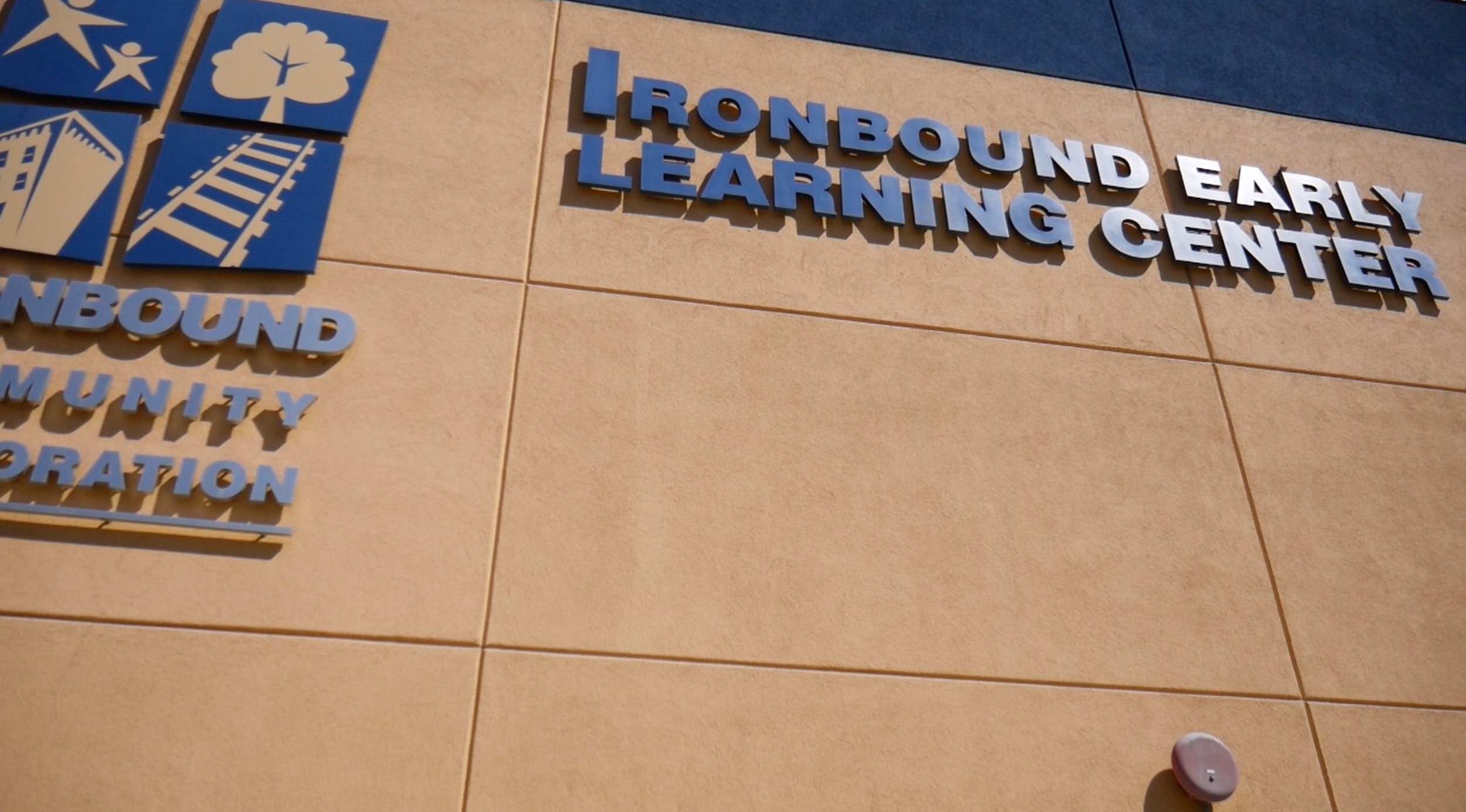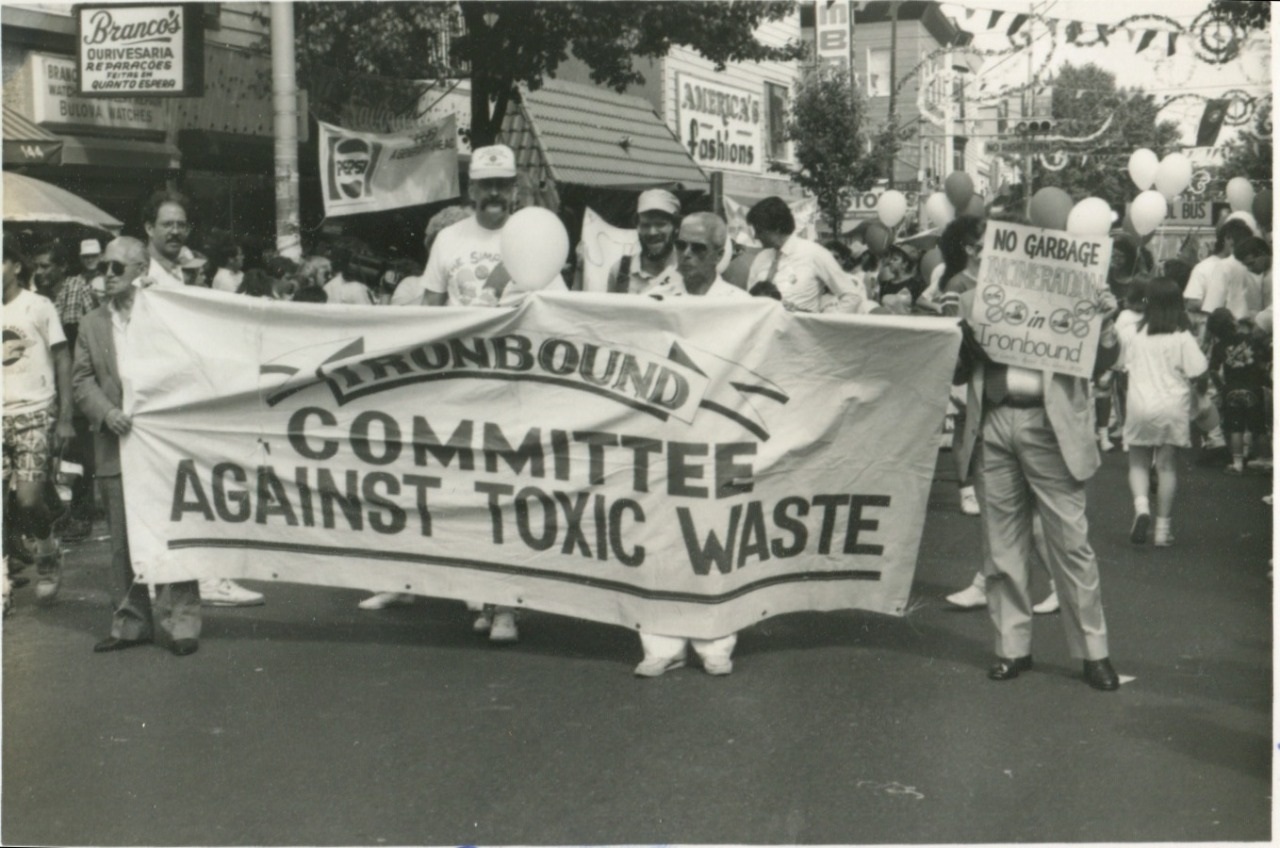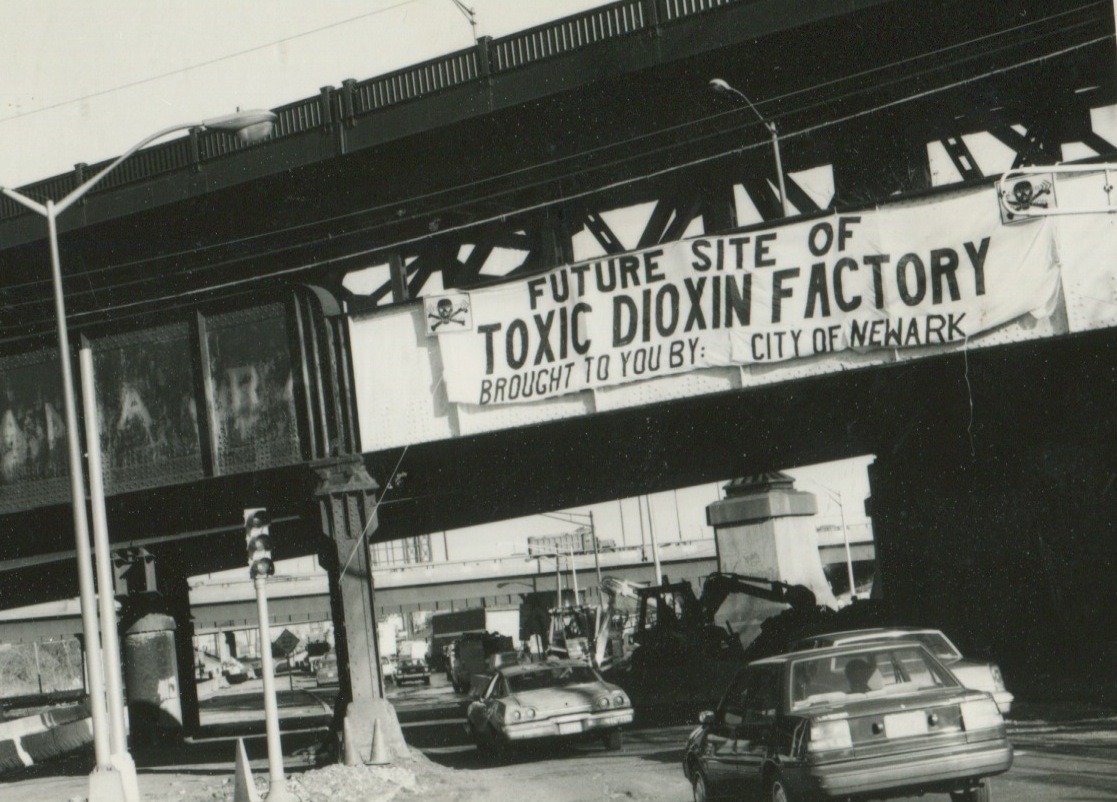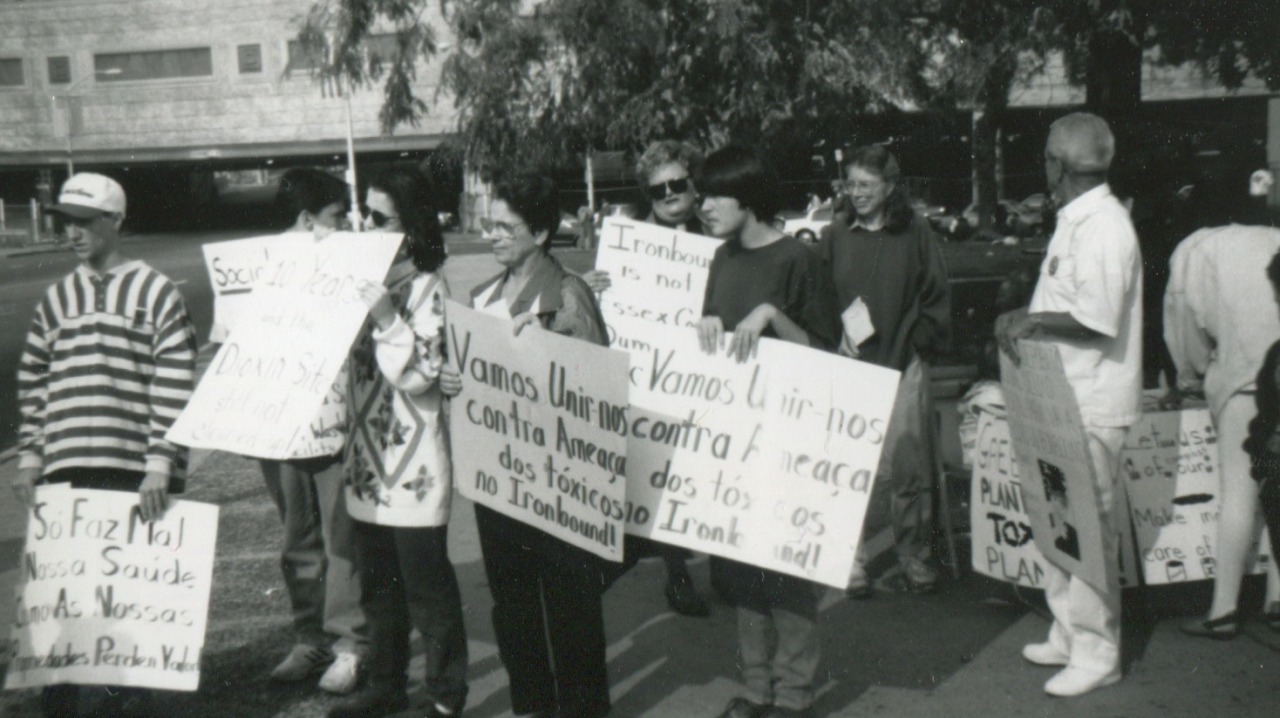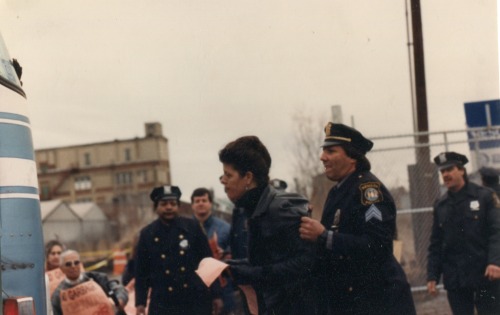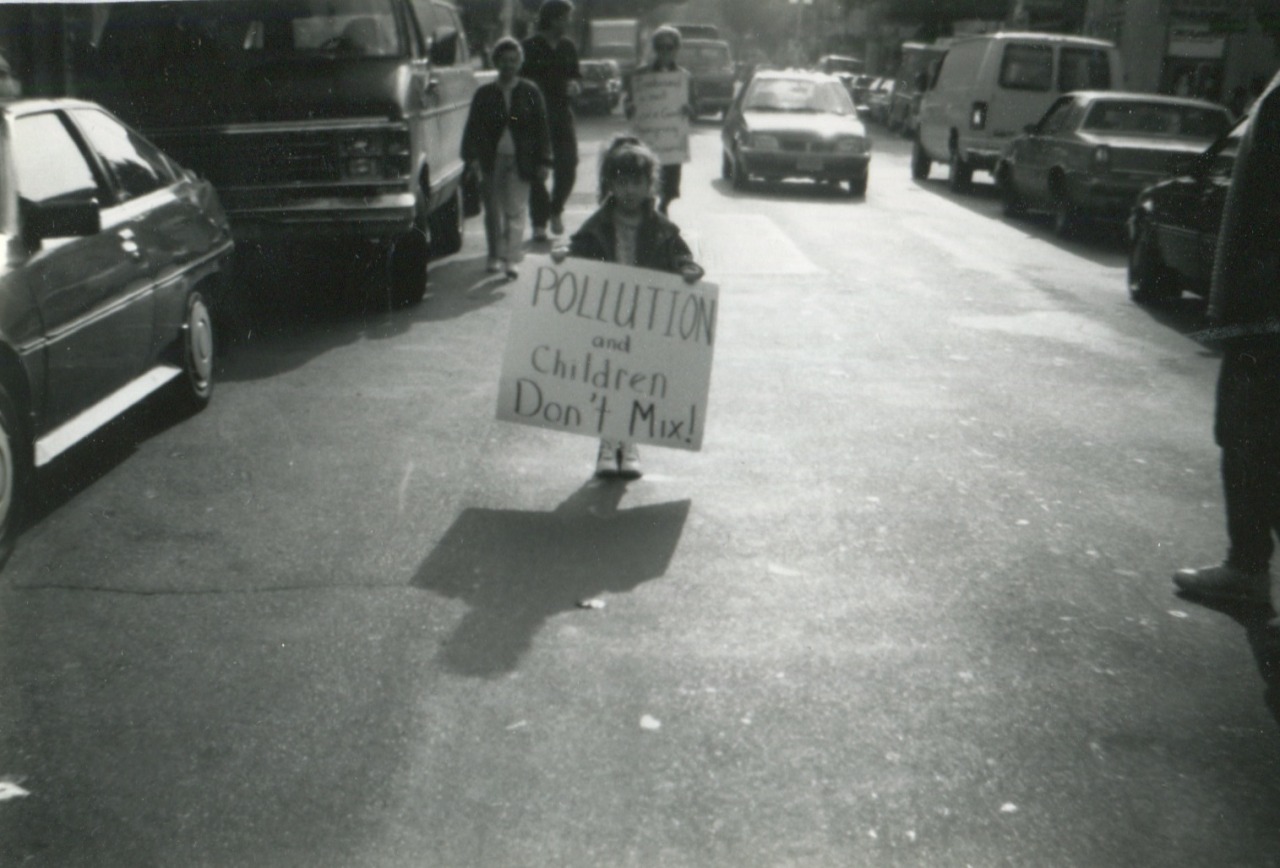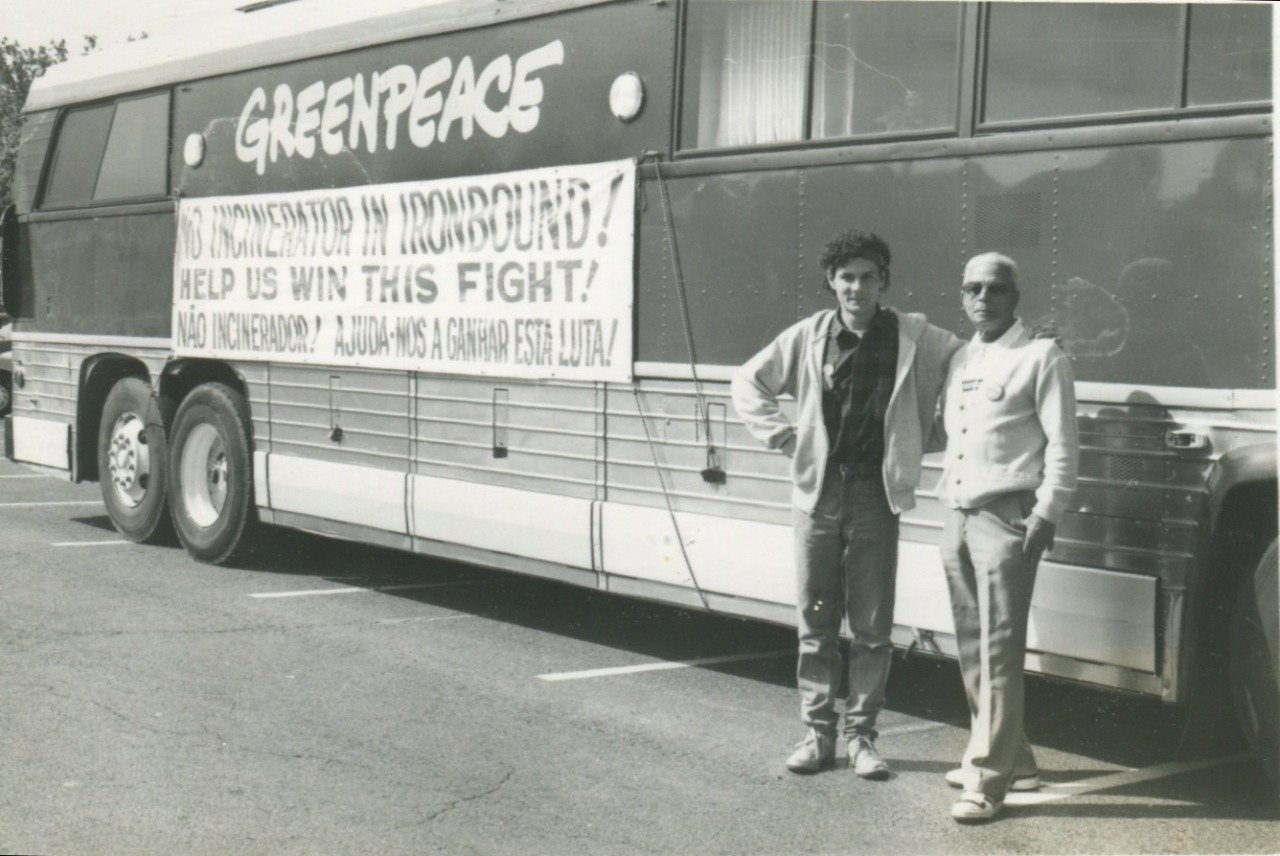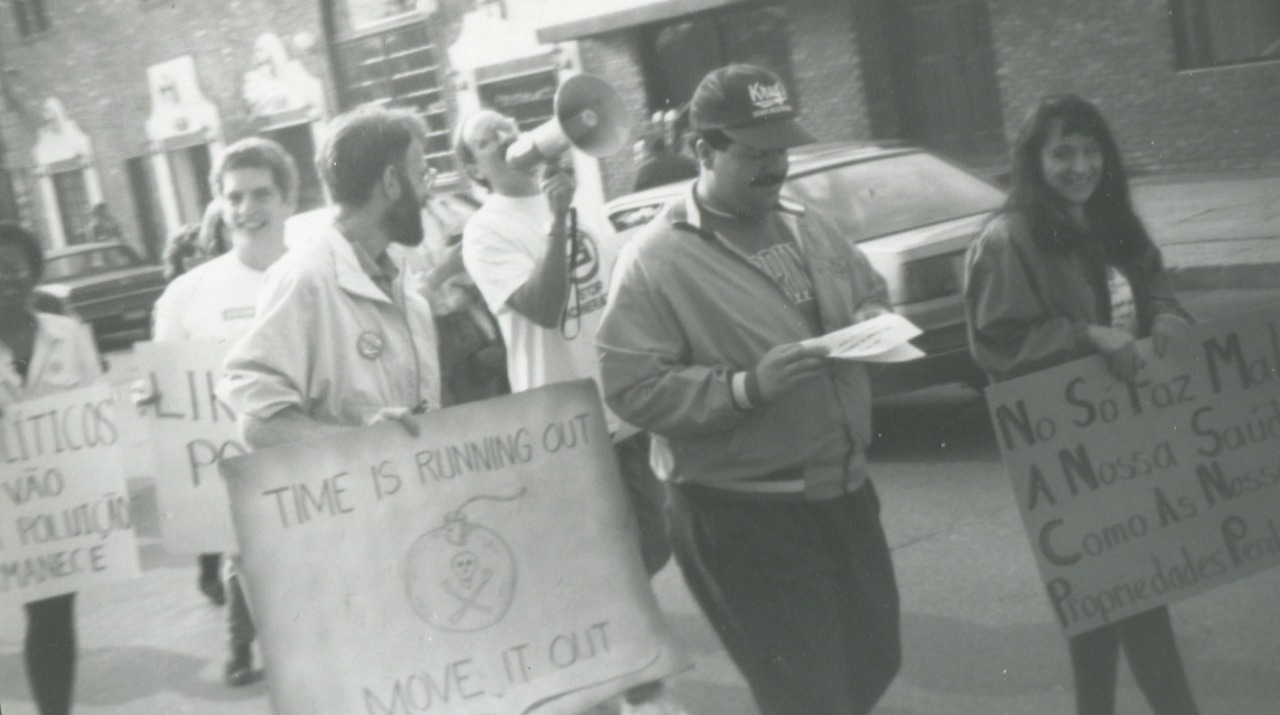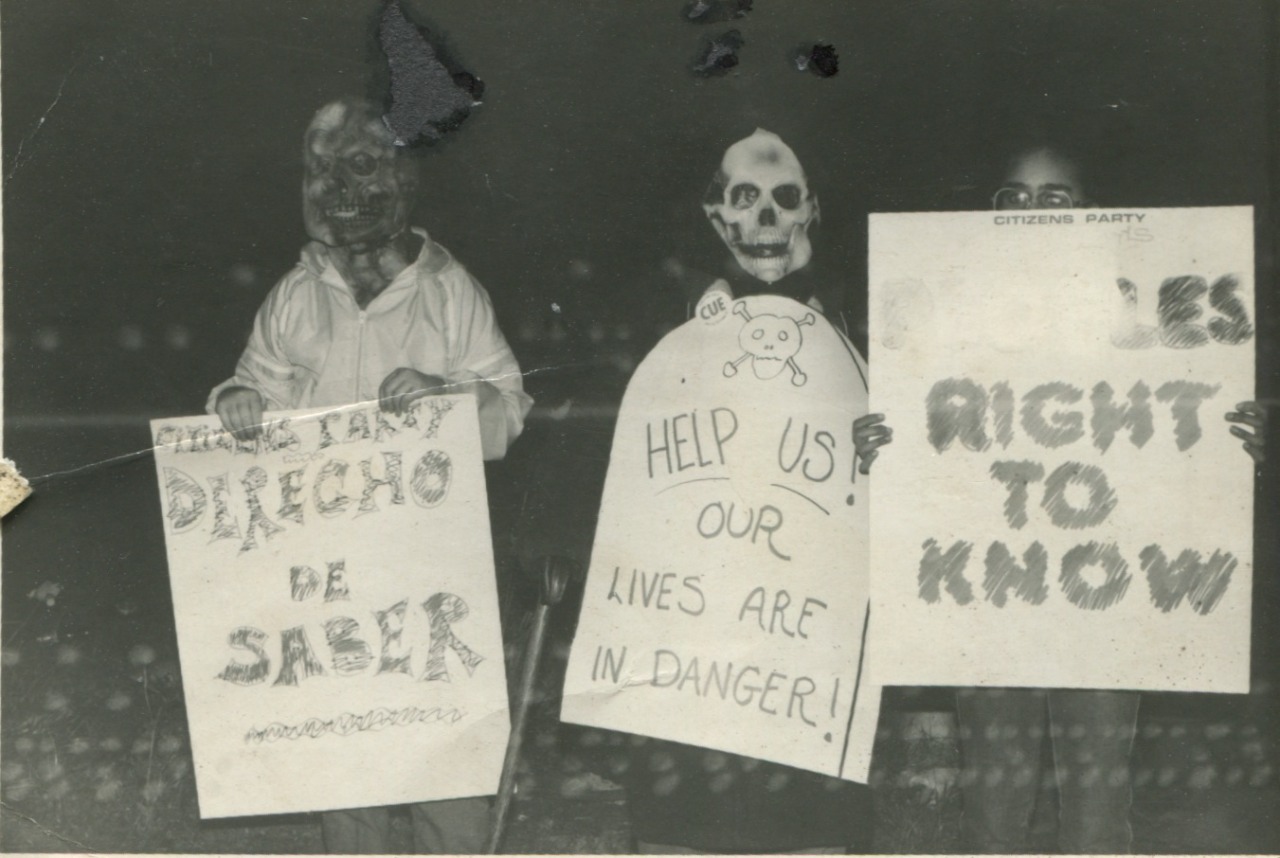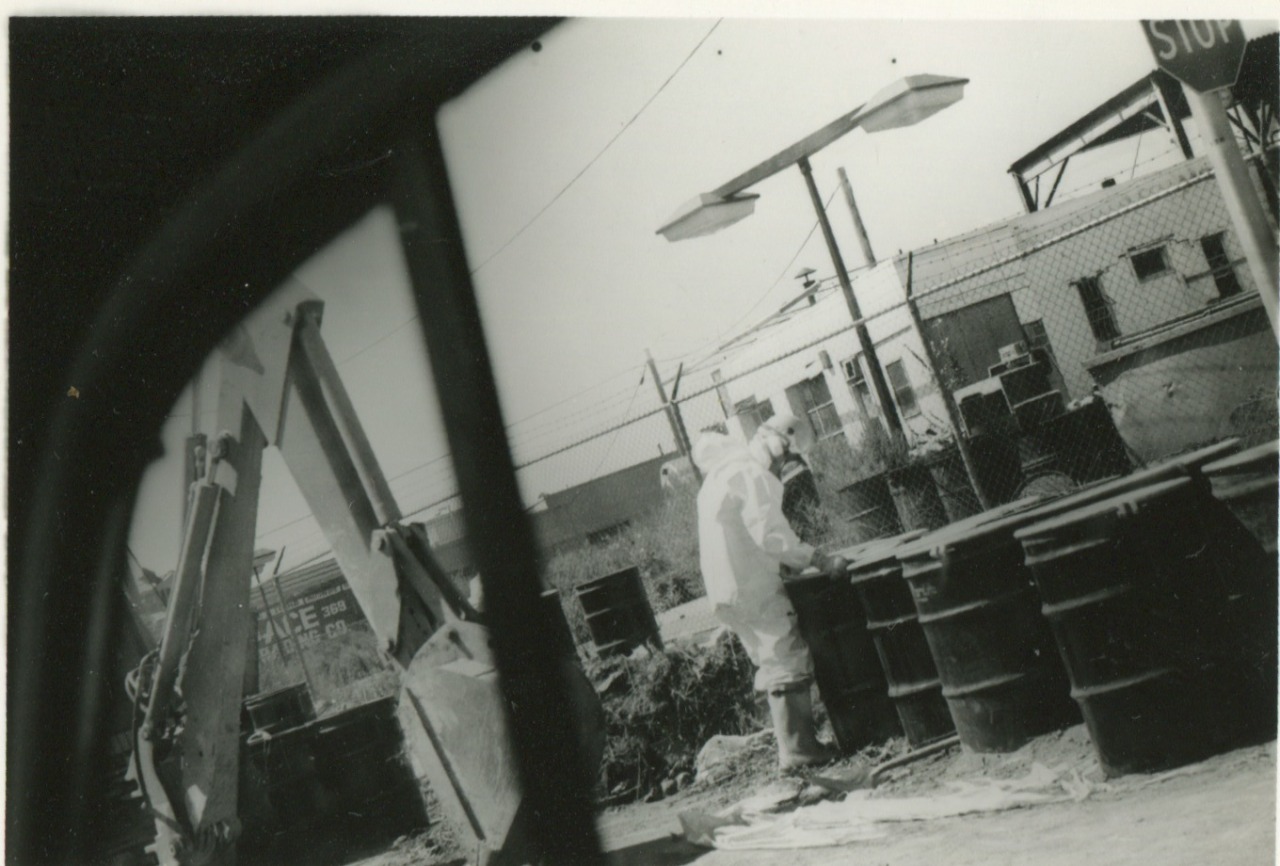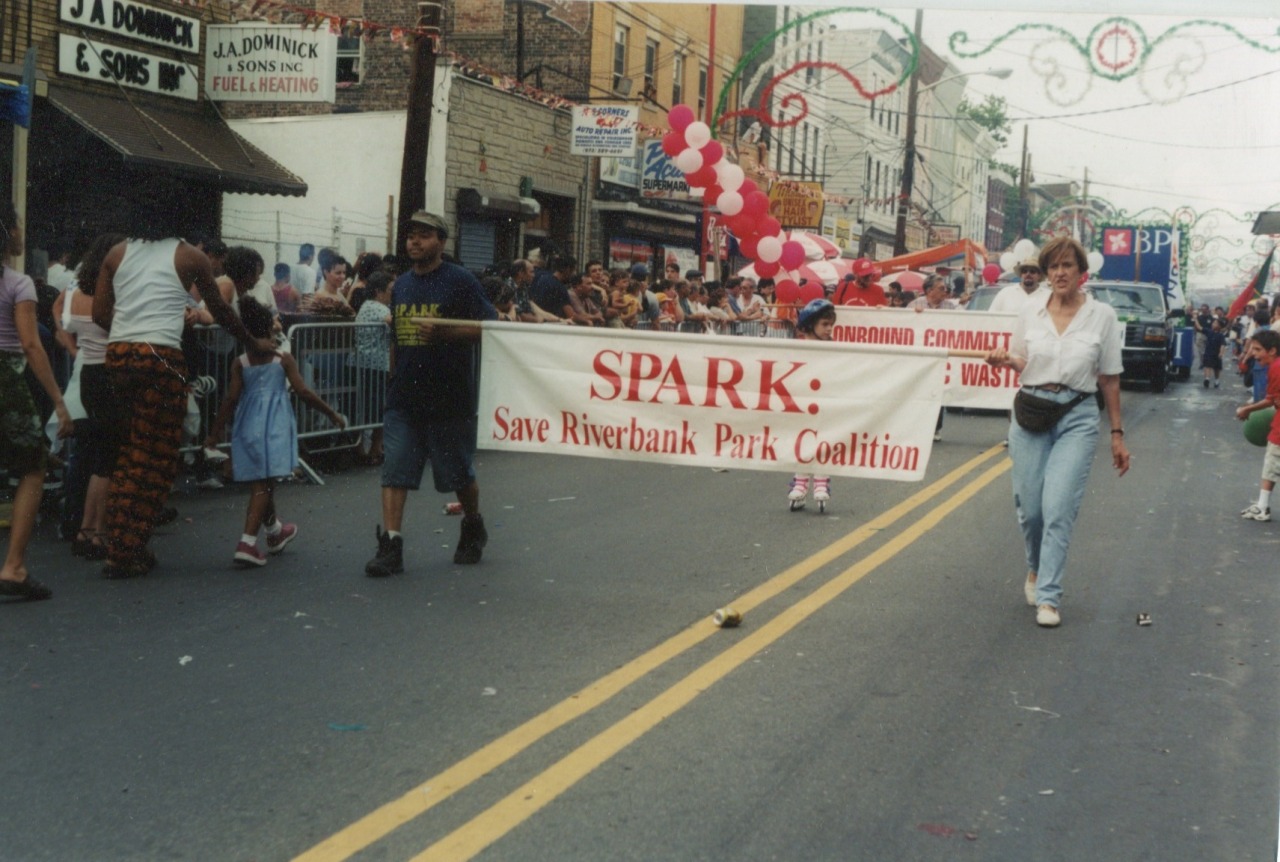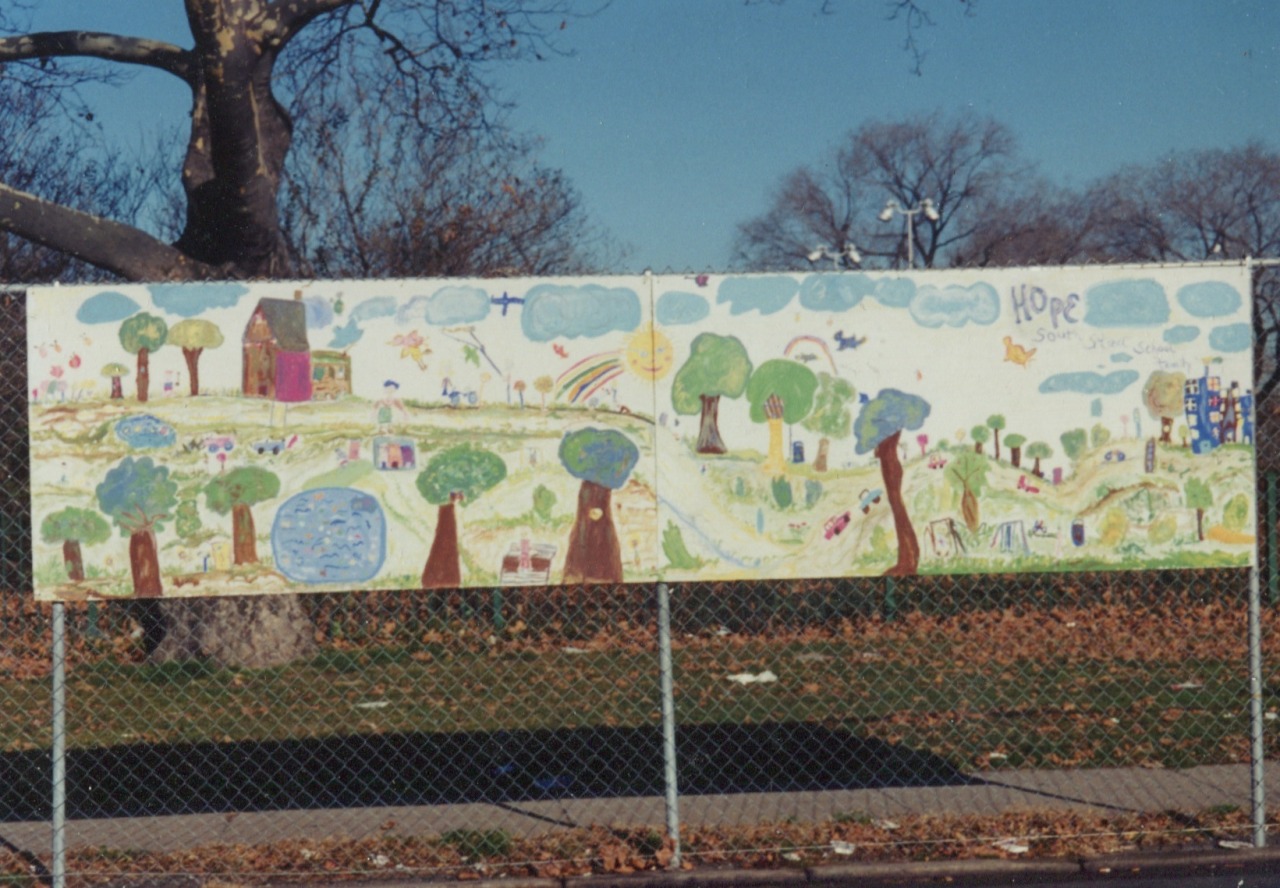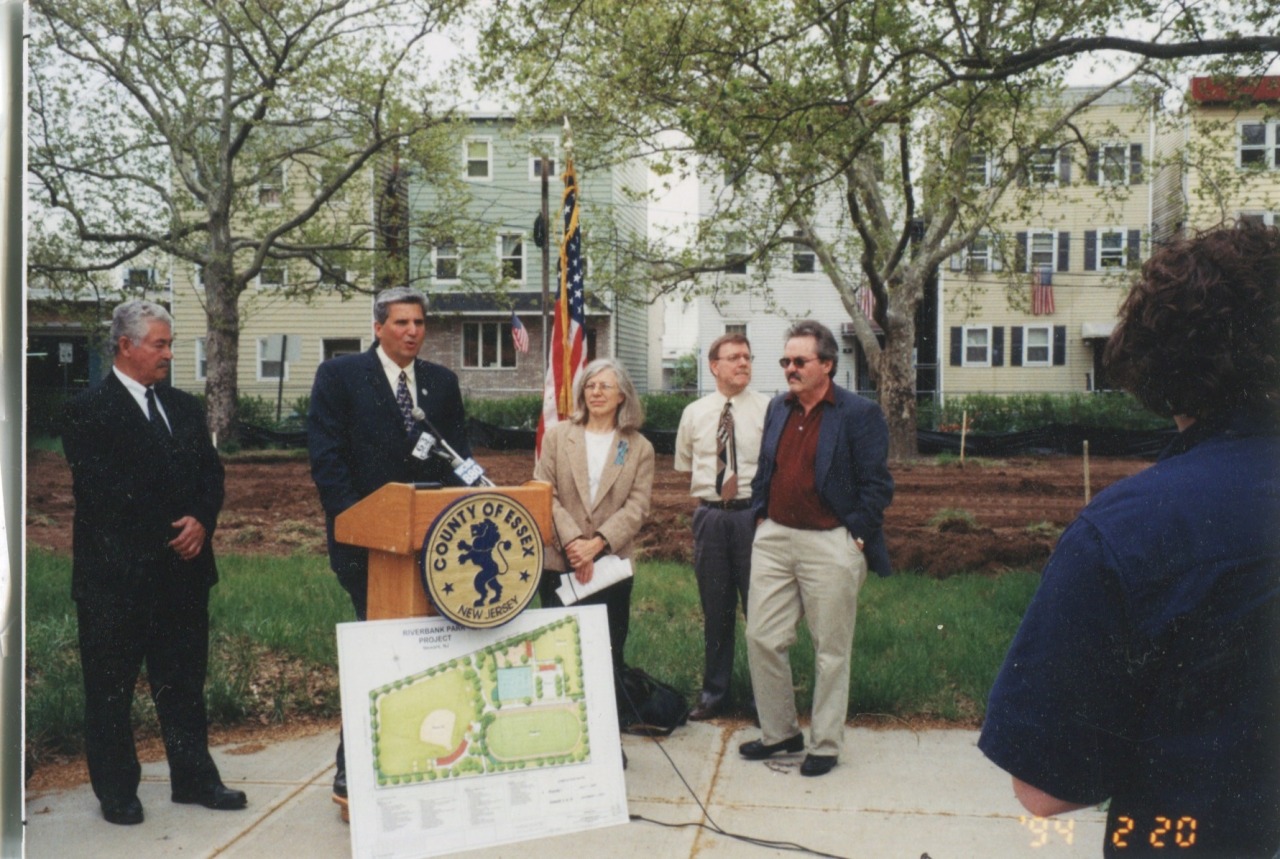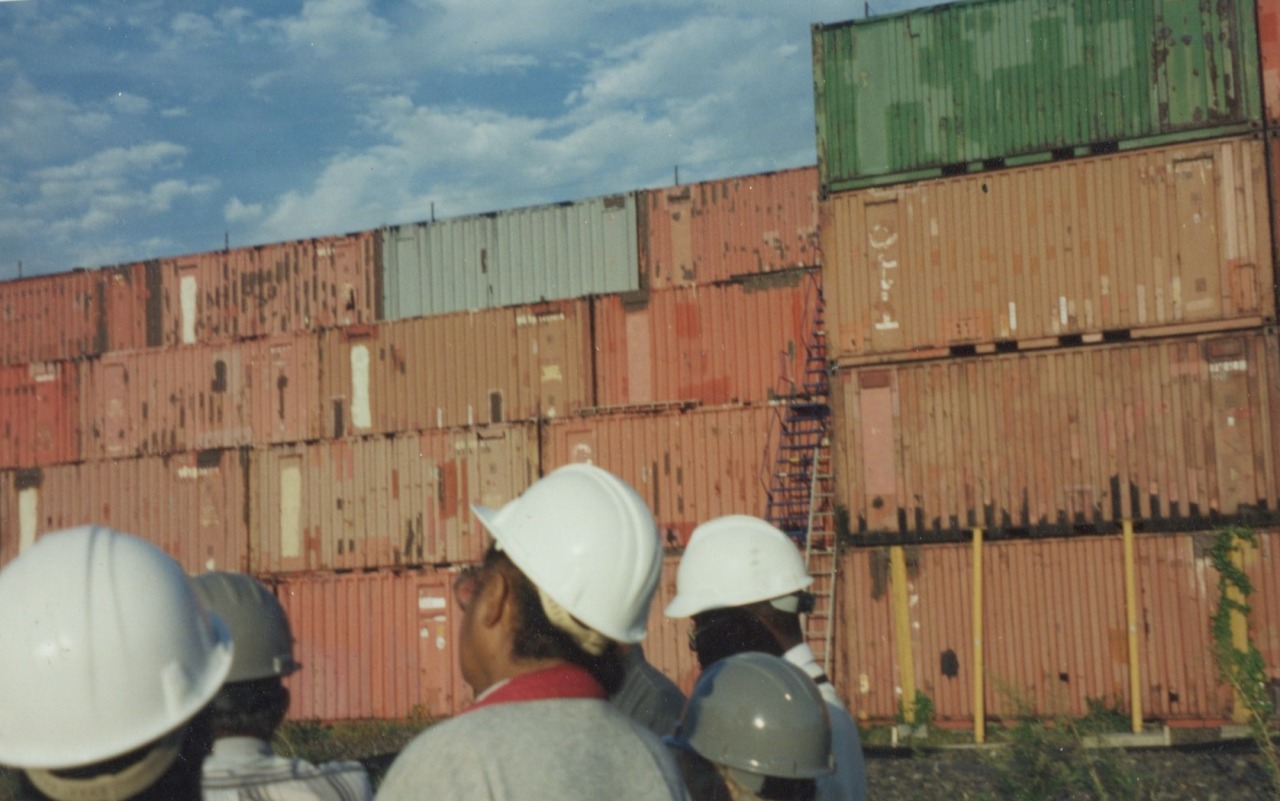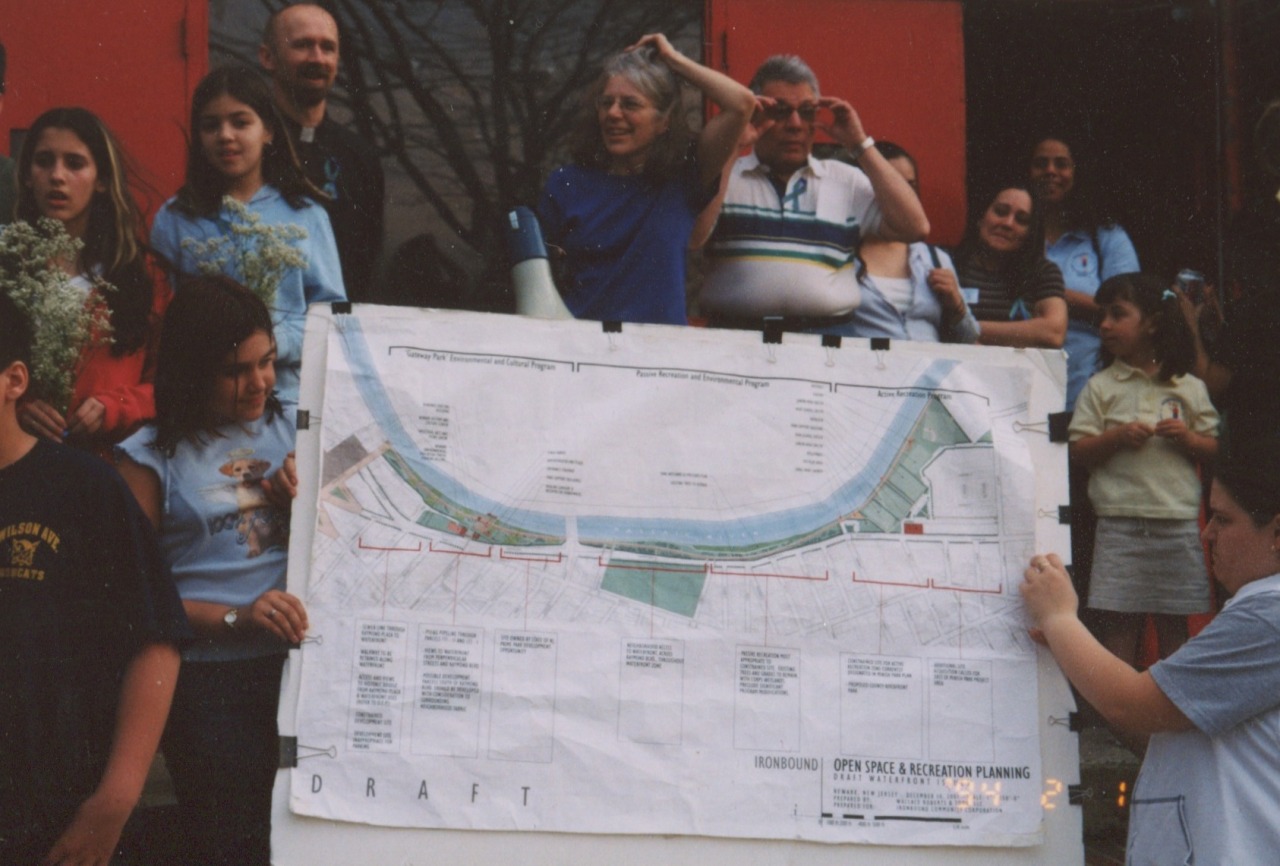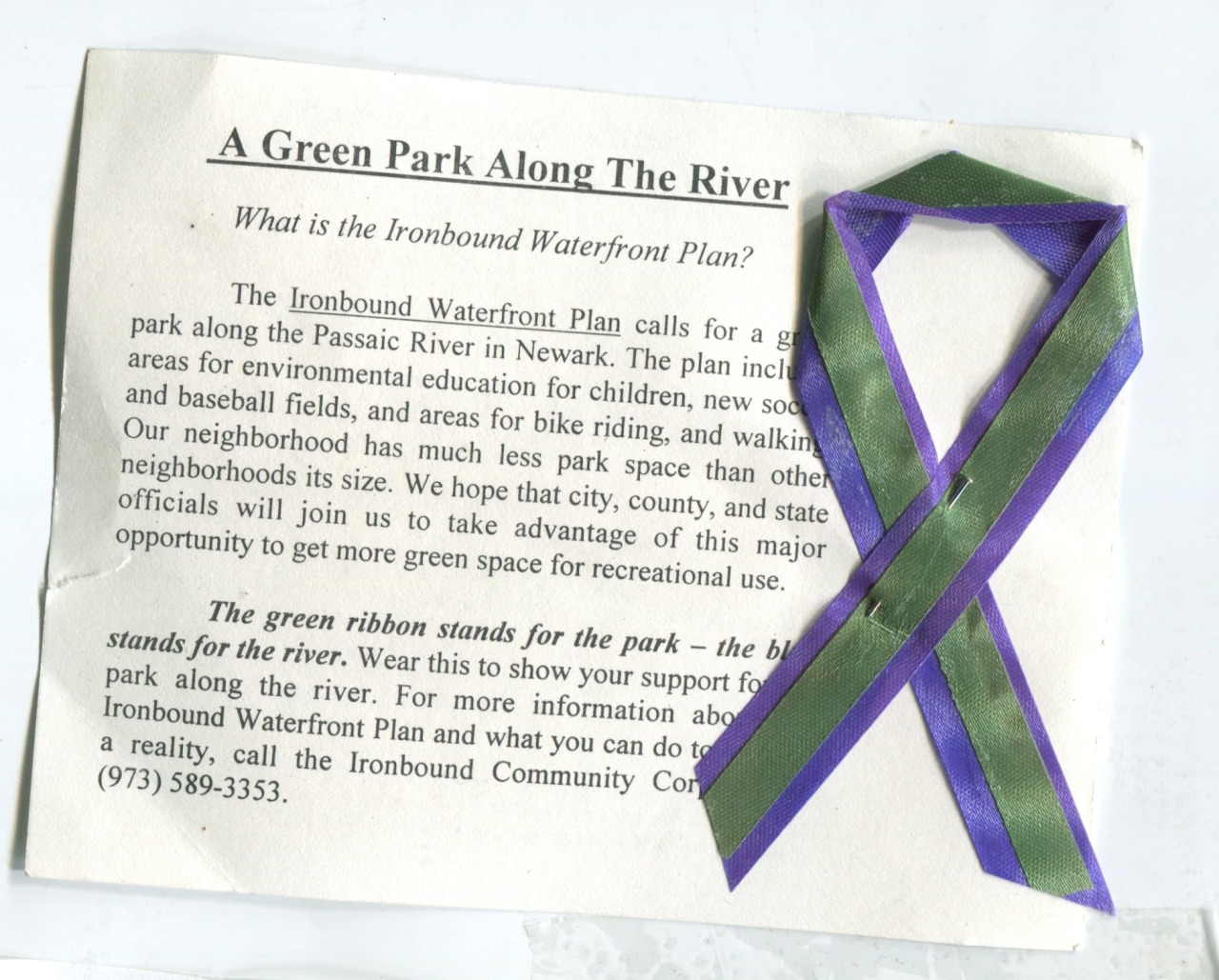The Ironbound Community Corporation (ICC) dates back 50 years, when residents came together to resolve the lack of childcare in their community. Since then it has grown into an organization that advocates as well as serves the community through social, educational, and health programs. From its humble beginnings, the Ironbound Community Corporation has grown exponentially, providing various services and programs to nearly 1,000 people daily. They’re educating residents on their rights and empowering them to take control of their future. Today, the ICC provides educational services, job and financial training for parents and adults, children’s after school and learning programs, and a community farm, as well as activism around housing rights and environmental justice.

1969
The Founding
The Ironbound Community Corporation began in 1969, after parents within the neighborhood discovered a need for a daycare center. Together, the ICC staff and parents within the neighborhood lobbied to get funding. The state initially turned them down but with continued activism and advocacy by the ICC, they were successful in getting a state contract to launch the program, the Ironbound Children’s Center. It was the ICC’s first program and it served about two dozen families. Today, the ICC runs the Ironbound Early Learning Center, which provides educational childcare to children from birth to 5-years-old in a 35,000 square foot facility.
There were activists and parents who came together in Ironbound to talk about their family and children’s needs and out of that came The Ironbound Children’s Center.
Joe Della Fave, Executive Director, Ironbound Community Corporation
Nearly 70% of children who attend the Ironbound Early Learning Center live in households where the income is at or below the poverty line. As of 2016, the federal poverty threshold is $24,339 for a family of four with at least two children. According to the National Center for Children in Poverty, families, on average, need an income of about twice as much as the federal poverty threshold to sustain their basic needs. Essentially, the ICC is servicing some of the most vulnerable families in the Ironbound.



1981
Ironbound Committee Against Toxic Waste
In 1981, a group called the Ironbound Committee Against Toxic Waste (ICATW) formed in response to the environmental challenges that plagued the Ironbound. Supported by the ICC, they were a group of neighborhood volunteers, parents, teachers, and everyday residents who organized to fight back against the legacy of industrialization in the Ironbound, where residential homes, schools and businesses exist alongside industrial facilities that often release chemicals, pollutants, and bad smells. Thousands of trucks pass through the neighborhood every day releasing diesel particulate matter into the air, which stays in your body for the rest of your life. The Ironbound community is left to deal with the consequences: One in four children in Newark suffer from asthma, with hospitalization rates 150 percent greater for children in the city than the rest of the state, and more than 30 times greater than the national rate. Through its environmental justice work, the ICC has continuously fought for a healthier and safer neighborhood for Ironbound residents.
Environmental justice is the right of all people, particularly communities that have been marginalized in this country and all over the world, whether it’s because of their race, their color, their culture, their income. They’ve been marginalized and exploited and at the same time they’re forced to live in communities that are disinvested in and that suffer from a lot of environmental burdens.
Ana Baptista, Board Member, Ironbound Community Corporation



1980s & 1990s
Fight against the garbage incinerator and dioxin
One of the ICC’s biggest ongoing fights has been against the Essex County Resource Recovery Facility, also known as Covanta Energy. This waste-to-energy incinerator that opened in 1990 is owned by the Port Authority of New York and New Jersey and operated by Covanta Energy. The company burns waste from municipalities and businesses to generate energy. While doing so, Covanta actively releases the chemical dioxin into the air. Dioxin, the key ingredient in Agent Orange, is the most carcinogenic manmade chemical. The ICC fought against the construction of the garbage incinerator; residents were very aware of the potential hazards. They took to the streets and protested and held community meetings to mobilize resistance.
The Ironbound was no stranger to the dangers of dioxin. On June 2, 1983, former Governor of New Jersey Thomas Kean declared a state of emergency after the state Department of Environmental Protection found extremely high levels of dioxin at the former Diamond Alkali Chemical Plant in Newark. The dioxin produced at Diamond Alkali had tracked through the city on the wheels of trucks. There was also dioxin being dumped directly into the Passaic River, located adjacent to the Ironbound. The following day, federal EPA investigators moved through the city in Hazmat gear, cleaning up the dioxin, while residents were advised to stay indoors. The ICC has long since protested against dioxin in their community.




The ICC was successful in getting Diamond Alkali to become a Superfund site. Attorney Michael Gordon, who was the ICATW’s lawyer on many cases, represented plant workers and residents on the Diamond Alkali case. Today, they have members on a Community Advisory board to help oversee the cleanup. The fight against dioxin in the Ironbound has been an extensive one but the organization continues to resist against these environmental injustices.
1992-2012
Fight for the parks
In Newark, there aren’t many parks or recreational spaces available to the community. The ICC has played an active role in securing two green spaces over the organization’s history, Riverbank Park and Riverfront Park.
In 1996, Essex County and the City of Newark were making a deal with Rick Cerone, a former Yankee baseball player, to build a baseball stadium for the Newark Bears in Riverbank Park. At the time, the Ironbound had about 22 acres of usable recreational space for over 50,000 residents. The ICC helped mobilize SPARK, Save the Park at Riverbank, a group of community residents who rallied to save Riverbank. The fight to save Riverbank was a shining example of the power that the ICC and community efforts held. The organizing and mobilization of residents by the ICC helped save the park.
We won that fight and because we won, it showed the politicians that we had the power to do stuff.
Nancy Zac, Director of Outreach, Ironbound Community Corporation



Newark’s first water front park, Riverfront Park, was yet another win for the ICC. The advocacy for a park along the river began in 1992. The development, planning, advocacy work, and initial dollars raised was all done by the leadership of the ICC. The community celebrated the opening of Riverfront Park in 2012. The fifteen-acre park expanded the public and open space in Ironbound by 50 percent.
As Dr. Clem Price, Newark historian once said, Newark was born on the river and now we have returned to the river with the park.
Joe Della Fave, Executive Director, Ironbound Community Corporation
On the 50th anniversary celebration of the ICC’s founding, its dedication to grassroots organizing has had a huge impact. From early childhood education to environmental cleanups, the ICC has improved the lives of the Ironbound residents and demonstrated that through dedication and mobilization, residents have power to build resistance and advocate for a healthier and more vibrant community.
Credits
Photos courtesy of Ironbound Community Corporation
Written by Nichole Montañez
Bruno, Mary. “How We Poisoned the Passaic.” Grist, Grist, 29 Sept. 2014, grist.org/article/2010-06-03-from-paradise-to-superfund-afloat-on-new-jerseys-passaic-river-p/full/.
“Hell on Wheels: Port Authority’s Broken Promise Is Choking Newark’s Kids.” Village Voice, www.villagevoice.com/2016/05/03/hell-on-wheels-port-authoritys-broken-promise-is-choking-newarks-kids/.
“Air Pollution May Impact Fetal Cardiovascular System, Rutgers Study Says.” Rutgers Today, 14 Mar. 2019, news.rutgers.edu/research-news/air-pollution-may-impact-fetal-cardiovascular-system-rutgers-study-says/20190308#.XNC4nNNKhsM.
“Demographics.” NCCP, www.nccp.org/profiles/NJ_profile_7.html.
“ICC HISTORY.” ICC, www.ironboundcc.org/icc-history.
“Photos By Struggle.” Tumblr, picturingjustice.tumblr.com/struggle.
